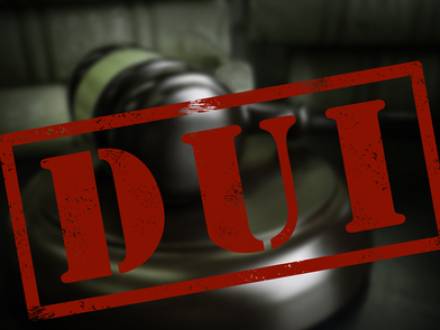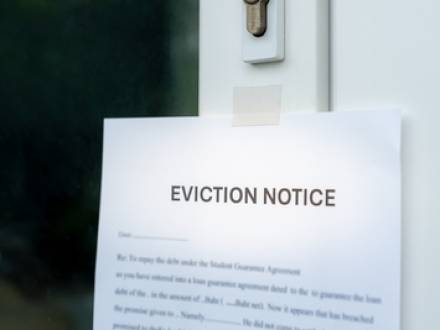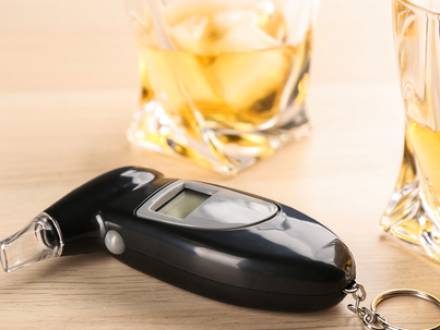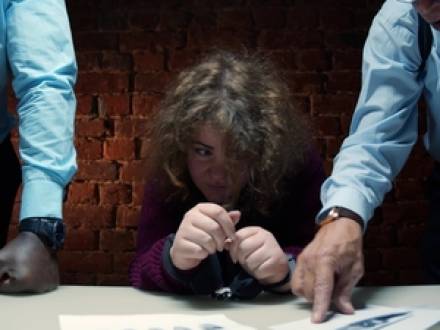Recent Blog Posts
What Is Constructive Possession in Illinois Drug Cases?
 Constructive possession in Illinois drug cases means you can be charged with possession even if drugs were not found on your body. Illinois courts allow prosecutors to rely on constructive possession when drugs are found in places like cars, homes, or shared spaces. These cases are often more complicated because the state must rely on circumstantial evidence instead of drugs being found directly on a person.
Constructive possession in Illinois drug cases means you can be charged with possession even if drugs were not found on your body. Illinois courts allow prosecutors to rely on constructive possession when drugs are found in places like cars, homes, or shared spaces. These cases are often more complicated because the state must rely on circumstantial evidence instead of drugs being found directly on a person.
In 2025, the U.S. Department of Justice reported more than 1,400 narcotics and drug convictions nationwide in a single month. Possession cases are frequent and are still being pursued. That broader enforcement climate matters when prosecutors look for ways to link drugs to a person indirectly.
If you are facing this type of charge, our DuPage County, IL drug possession defense lawyer can help you understand how to fight a possession charge.
What Is Aggravated DUI in Illinois?
 Even if no one was injured, certain facts can turn a misdemeanor driving under the influence (DUI) charge into a felony. In Illinois, aggravated DUI carries harsher penalties and long-term consequences. Before you step into a courtroom, contact our Naperville, IL DUI defense lawyer. At Appelman Law LLC, we can help you understand what you are facing and what options may exist.
Even if no one was injured, certain facts can turn a misdemeanor driving under the influence (DUI) charge into a felony. In Illinois, aggravated DUI carries harsher penalties and long-term consequences. Before you step into a courtroom, contact our Naperville, IL DUI defense lawyer. At Appelman Law LLC, we can help you understand what you are facing and what options may exist.
How Is Aggravated DUI Defined Under Illinois Law?
Under 625 ILCS 5/11-501(d), Illinois law lists specific circumstances that elevate a standard DUI to an aggravated status. Unlike a standard DUI, which is usually a misdemeanor, an aggravated DUI is a felony offense. The exact felony class depends on the facts of the case, such as prior convictions or whether someone was harmed.
What Factors Can Turn a DUI Into an Aggravated DUI in Illinois?
Aggravated DUI applies when certain conditions are present at the time of the arrest or offense. Common factors that can result in an aggravated DUI charge include:
When Drug Charges Trigger Child-Endangerment in Illinois
 Illinois prosecutors may file additional charges when children are present during a traffic stop, drug raid, or alleged drug delivery. These are known as "child-endangerment add-ons" under 720 ILCS 5/12C-5. These add-on charges can quickly transform simple possession into a multi-felony situation with much more serious consequences. Even when a child was not directly involved and was not harmed, Illinois law allows prosecutors to argue that the drug activity placed the child in a "dangerous situation."
Illinois prosecutors may file additional charges when children are present during a traffic stop, drug raid, or alleged drug delivery. These are known as "child-endangerment add-ons" under 720 ILCS 5/12C-5. These add-on charges can quickly transform simple possession into a multi-felony situation with much more serious consequences. Even when a child was not directly involved and was not harmed, Illinois law allows prosecutors to argue that the drug activity placed the child in a "dangerous situation."
Child endangerment charges carry separate penalties, DCFS involvement, and even the loss of parental rights in some cases. Anyone facing drug allegations in Illinois with add-on child endangerment charges must understand how these charges work and how an experienced Naperville, IL criminal defense lawyer can fight the charges in the most effective manner.
Illinois Drug Search Warrants Built on Anonymous Phone Calls
 In their zeal to arrest those who are allegedly involved in the illegal drug business, police may sometimes skip a few steps and obtain a search warrant based solely on an anonymous tip. A neighbor may report "suspicious activity," or, in some cases, the anonymous tip is simply a way to "get back at" someone for a real or imagined slight.
In their zeal to arrest those who are allegedly involved in the illegal drug business, police may sometimes skip a few steps and obtain a search warrant based solely on an anonymous tip. A neighbor may report "suspicious activity," or, in some cases, the anonymous tip is simply a way to "get back at" someone for a real or imagined slight.
Officers may use these unverified calls to support a search warrant request in drug investigations; however, if there is no corroboration, the warrant may be invalid, and the evidence may be suppressible. Anonymous tips are among the weakest forms of probable cause and are heavily scrutinized in Illinois courts under the Aguilar-Spinelli/Gates totality-of-the-circumstances test.
If your drug arrest was based solely on a search warrant that considered an anonymous tip "probable cause," speaking to an experienced DuPage County, IL criminal defense attorney gives you a much better chance at a positive outcome. Drug charges in Illinois can carry severe penalties, so you need an attorney who will aggressively fight for your future.
Removing Violent Tenants Without Legal Backlash in IL
 While Illinois landlords can face many issues with tenants, fights or violence between tenants can result in a legal double bind – a landlord who acts too slowly risks a negligence claim. At the same time, acting too quickly can risk violating tenant protections. Eviction for criminal or threatening conduct is allowed under the Illinois Forcible Entry and Detainer Act (735 ILCS 5/9-101 et seq) and the Chicago Residential Landlord and Tenant Ordinance (RLTO).
While Illinois landlords can face many issues with tenants, fights or violence between tenants can result in a legal double bind – a landlord who acts too slowly risks a negligence claim. At the same time, acting too quickly can risk violating tenant protections. Eviction for criminal or threatening conduct is allowed under the Illinois Forcible Entry and Detainer Act (735 ILCS 5/9-101 et seq) and the Chicago Residential Landlord and Tenant Ordinance (RLTO).
Landlords must follow strict notice, documentation, and due-process requirements. If you are a landlord facing such a situation, it can be highly beneficial to speak to a knowledgeable DuPage County, IL landlord eviction attorney. Doing so can minimize your exposure to retaliation or discrimination claims while handling a potentially volatile situation.
"Sniffing" for Alcohol: Are Passive Sensors Legal in Illinois?
 When police officers testify in DUI trials, you will often hear them say that they "smelled alcohol" on the driver’s breath or when they leaned in the open car window to speak to the driver. And, in fact, an officer smelling alcohol gives him or her the necessary probable cause to ask the driver to perform field sobriety tests or take a portable breathalyzer test.
When police officers testify in DUI trials, you will often hear them say that they "smelled alcohol" on the driver’s breath or when they leaned in the open car window to speak to the driver. And, in fact, an officer smelling alcohol gives him or her the necessary probable cause to ask the driver to perform field sobriety tests or take a portable breathalyzer test.
What most drivers may not realize is that in some cases, the "smell" may actually come from a passive alcohol sensor hidden inside the officer’s flashlight or other traffic-stop device. These tools detect alcohol vapor in the air around a driver before any formal test or consent occurs.
The use of these devices, while legal in Illinois, raises serious questions regarding whether drivers are being screened without consent. You can find out more about PAS devices below; however, speaking with a knowledgeable Naperville, IL DUI lawyer is always the best step for the most positive outcome available.
The Analogue Act: Surprising Drug Charges in Illinois
 When most of us think of drug charges, we generally think of substances like heroin, cocaine, or methamphetamine. However, you can face serious felony charges in Illinois for possessing or selling substances that are not technically listed as illegal but are chemically similar to controlled substances.
When most of us think of drug charges, we generally think of substances like heroin, cocaine, or methamphetamine. However, you can face serious felony charges in Illinois for possessing or selling substances that are not technically listed as illegal but are chemically similar to controlled substances.
Under the Illinois Controlled Substances Analogue Act (720 ILCS 570/401), while these synthetic or "look-alike" drugs are sometimes marketed as safe alternatives, Illinois law criminalizes them as if they were the real thing. This could lead to an unexpected arrest, complex lab testing, and the potential of severe criminal penalties for a drug you did not know was banned.
If you are facing criminal charges for a "controlled substance analogue," it is essential that you consult with a highly skilled Naperville, IL criminal defense attorney who can build a solid defense on your behalf. These are not charges that you should attempt to face on your own, as they could result in severe criminal penalties.
False Confessions: What Illinois Forensic Psychologists Reveal
 Confessions presented in court for criminal offenses are often seen as a definitive "smoking gun," determining guilt beyond a reasonable doubt. After all, who would confess to something they did not do? Unfortunately, false confessions are much more common than you would think, and the state of Illinois has a troubling history of wrongful confessions tied to coerced or false confessions. In fact, the state has learned the hard way – through high-profile exonerations – that psychology can be just as critical as physical evidence.
Confessions presented in court for criminal offenses are often seen as a definitive "smoking gun," determining guilt beyond a reasonable doubt. After all, who would confess to something they did not do? Unfortunately, false confessions are much more common than you would think, and the state of Illinois has a troubling history of wrongful confessions tied to coerced or false confessions. In fact, the state has learned the hard way – through high-profile exonerations – that psychology can be just as critical as physical evidence.
Forensic psychologists can help jurors understand why an innocent person might confess to a crime he or she did not commit, while defense attorneys can utilize this science to help protect their clients. If you are facing serious criminal charges and you were coerced into confessing to a crime you did not commit, a Naperville, IL criminal defense attorney can help.
What is the Armed Habitual Criminal Statute in Illinois?
 The state of Illinois takes gun crimes seriously, but repeat offenders will face even harsher penalties. Under the state’s Armed Habitual Criminal (AHC) statute (720 ILCS 5/24-1.7), those with prior felony convictions can face severe prison sentences just for being caught with a firearm – even when the gun was not used in a violent crime.
The state of Illinois takes gun crimes seriously, but repeat offenders will face even harsher penalties. Under the state’s Armed Habitual Criminal (AHC) statute (720 ILCS 5/24-1.7), those with prior felony convictions can face severe prison sentences just for being caught with a firearm – even when the gun was not used in a violent crime.
While the law is designed to target repeat offenders with serious felony conviction histories, it can be unevenly applied simply for possession of a gun. An AHC conviction carries a mandatory prison sentence with no option for probation.
If you are facing AHC charges, it is important to have a strong legal advocate by your side who will work hard to minimize the consequences of your charges. A Naperville, IL, criminal defense lawyer can help build a comprehensive defense to achieve the best possible outcome.
Illinois Landlord Rights When Tenants Run Airbnbs
 Landlords in Illinois – and across the country - are facing new headaches thanks to the increase in short-term rental platforms like Airbnb and Vrbo. Especially in cities like Chicago, Springfield, and Evanston, the popularity of Airbnbs has exploded. Tenants may view this as an easy way to earn a few extra dollars, perhaps even while they are away on their own vacations.
Landlords in Illinois – and across the country - are facing new headaches thanks to the increase in short-term rental platforms like Airbnb and Vrbo. Especially in cities like Chicago, Springfield, and Evanston, the popularity of Airbnbs has exploded. Tenants may view this as an easy way to earn a few extra dollars, perhaps even while they are away on their own vacations.
These tenants may believe that as long as they pay their rent, they can sublet for a few days or a week if they wish. However, unauthorized subletting can potentially expose landlords to legal, safety, and financial risks. Landlords do have rights when tenants convert their rentals into unauthorized Airbnb properties. If you are a landlord in this position, it is crucial to speak to a knowledgeable Naperville, IL civil litigation lawyer.
What is Illinois Law on Subletting and Short-Term Rentals?
Whether a tenant can sublet an apartment or rent it as an Airbnb is primarily determined by local ordinances and the terms of the lease agreement. If the lease does not mention subletting and local ordinances do not prohibit it, a tenant may legally be able to sublet without landlord permission, but it is generally advisable to speak to the landlord before subletting. If a lease allows subletting but requires landlord consent, the landlord can refuse a subtenant based on the same reasons used to screen tenants.





